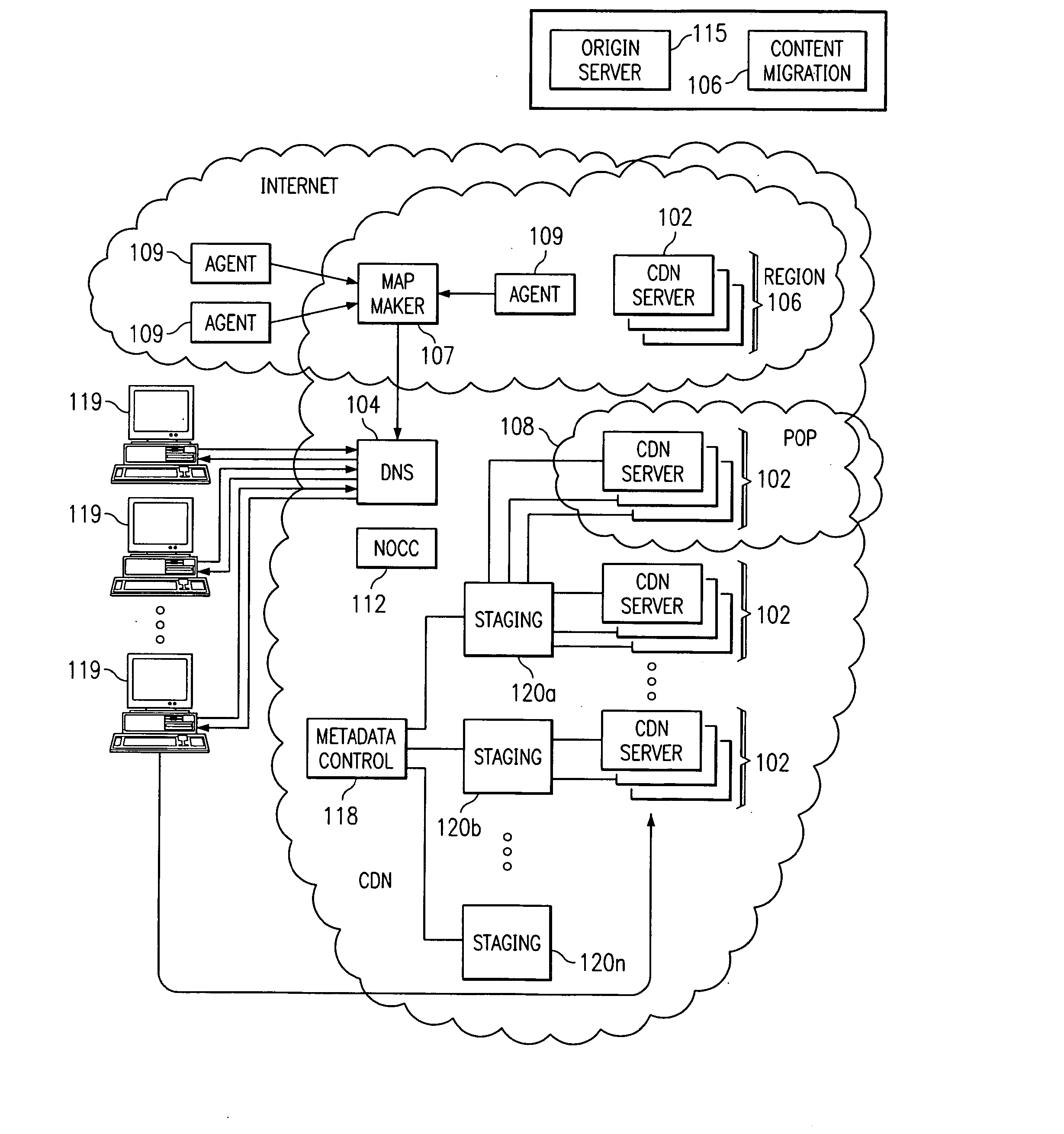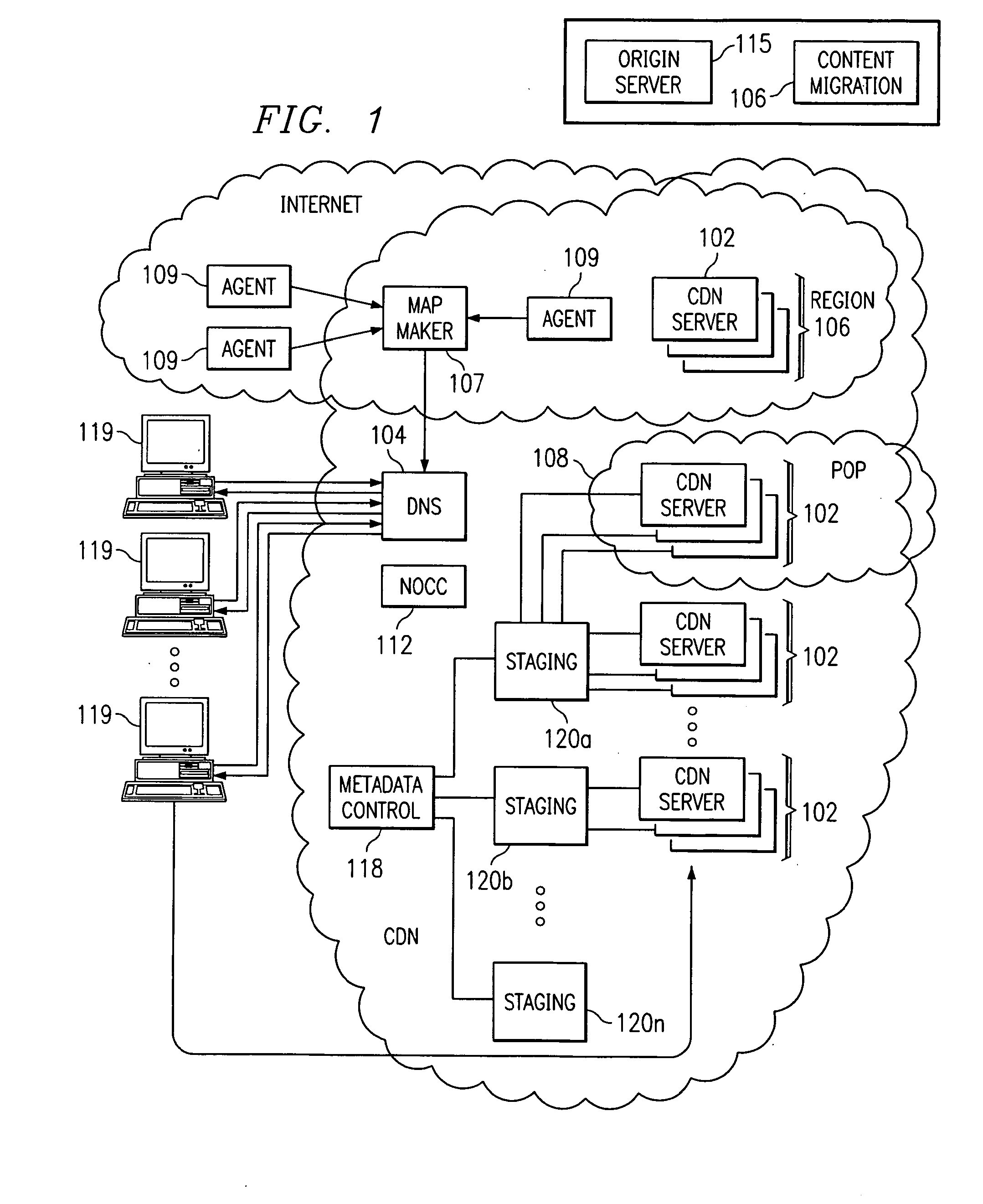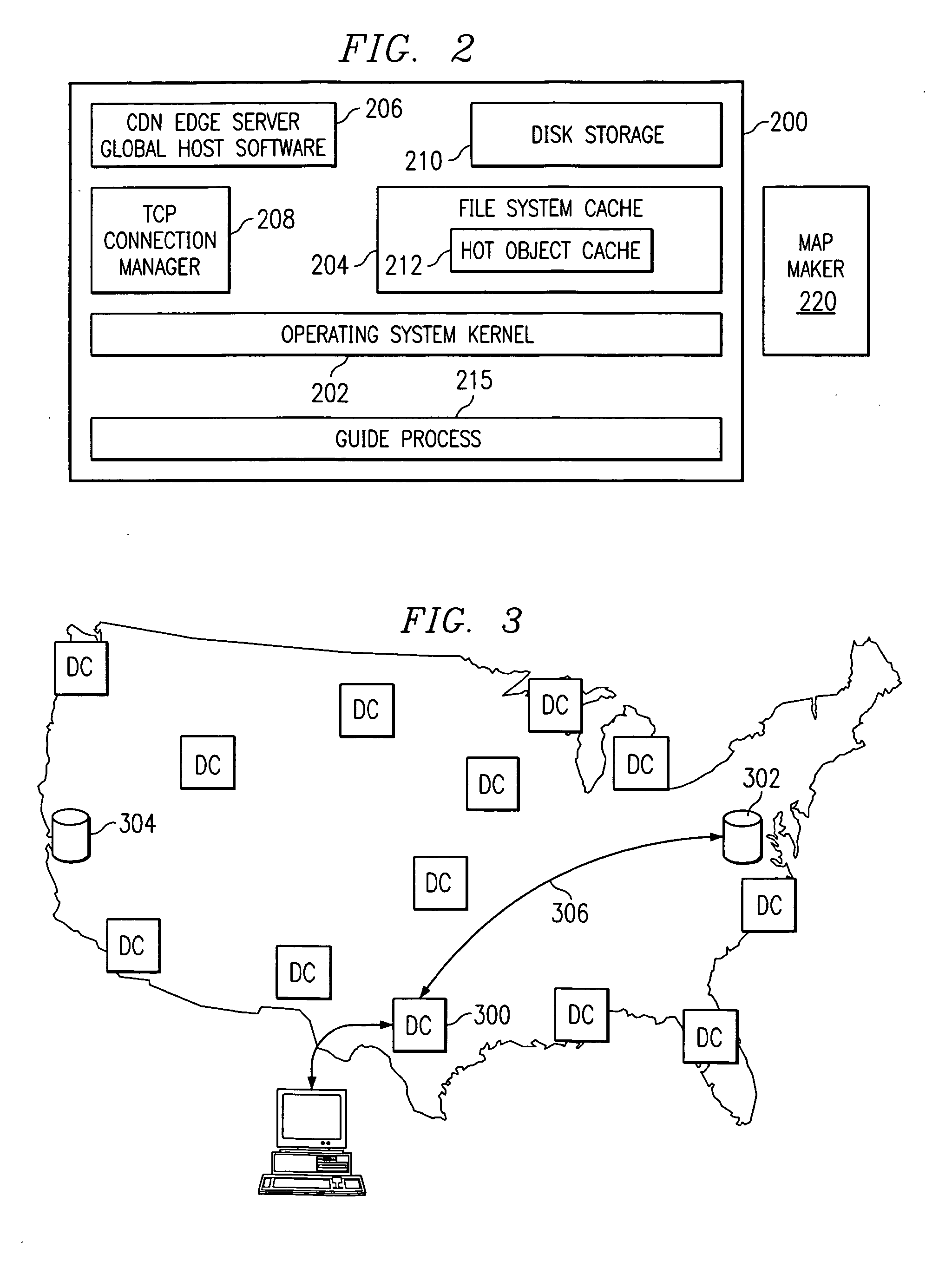Optimal route selection in a content delivery network
a content delivery network and optimal routing technology, applied in the field of optimal routing in content delivery networks, can solve the problems of internet routers not being aware, willing or allowed to use these paths, and packets sent over those paths can get dropped or delayed, so as to improve the speed and reliability of data transfers.
- Summary
- Abstract
- Description
- Claims
- Application Information
AI Technical Summary
Benefits of technology
Problems solved by technology
Method used
Image
Examples
Embodiment Construction
[0029] As described above, it is known in the art to delivery HTTP, streaming media and applications over an Internet content delivery network (CDN or ICDN). The present invention may leverage Internet CDN architecture and functionality such as now generally described.
[0030] As seen in FIG. 1, an Internet content delivery infrastructure usually comprises a set of “surrogate” origin servers 102 that are located at strategic locations (e.g., Internet network access points, and the like) for delivering copies of content to requesting end users 119. A surrogate origin server is defined, for example, in IETF Internet Draft titled “Requirements for Surrogates in the HTTP” dated Aug. 9, 2000, which is incorporated herein by reference. The request-routing mechanism 104 allocates servers 102 in the content delivery infrastructure to requesting clients in a way that, for web content delivery, minimizes a given client's response time and, for streaming media delivery, provides for the highest...
PUM
 Login to View More
Login to View More Abstract
Description
Claims
Application Information
 Login to View More
Login to View More - R&D
- Intellectual Property
- Life Sciences
- Materials
- Tech Scout
- Unparalleled Data Quality
- Higher Quality Content
- 60% Fewer Hallucinations
Browse by: Latest US Patents, China's latest patents, Technical Efficacy Thesaurus, Application Domain, Technology Topic, Popular Technical Reports.
© 2025 PatSnap. All rights reserved.Legal|Privacy policy|Modern Slavery Act Transparency Statement|Sitemap|About US| Contact US: help@patsnap.com



